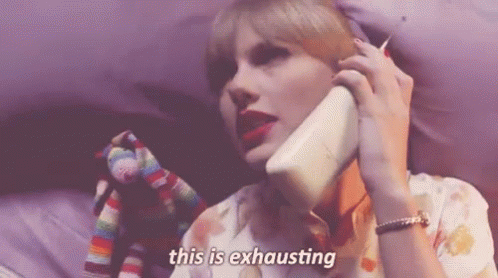How to Deal With Burnout in IT


If you’re feeling burnt out or drained at work, you’re not alone. Burnout is an all too common feeling in the information technology industry, especially now that work-life balance has become a bigger challenge due to remote work. Burnout leads to people feeling overwhelmed and chronically exhausted, which in turn can increase stress levels, reduce well-being, and affect you physically and mentally.
If you’re experiencing burnout, there are strategies that you can utilize that will help mitigate some of the side effects. With the right strategy, you can better manage your workload, enjoy extracurricular activities, improve your workspace, develop several types of goals, and optimize teamwork.
Jump to:
An excessive workload can increase the risk of burnout, and sometimes, difficult tasks may cause anxiety, reduce motivation, and decrease innovation. Typically, a large workload also affects the morale of employees. With so many employees managing a large workload though, it’s no wonder over 25% of burnt-out employees cite it as the top reason for their discontent.
After workload, unreasonably goaling is another major cause of burnout for IT. Goals that are unachievable, ambiguous, or unclear not only lead to stressful working conditions but also increase the average duration of completing those goals. IT professionals who feel their goals are unrealistic or vague are more likely to be apathetic, which can cause further morale issues, making the work environment worse for everyone.
Signs that someone (including yourself) are burned out include any of the following:
Constant exhaustion in and outside of work is one of the most common signs that you can use a break.

Being on edge, snapping, and constant shielding is an easy way of finding burnout, although irritability can show itself differently in everyone. That said, it’s most likely to be seen in stressful situations.
In general, people care about their surroundings. Negativity can be a cry to make a bad situation better. When there’s no desire for a change in condition, when a lack of care turns into total indifference about a situation, chances are it’s burnout.
Constant burnout can wreak havoc physically if left unchecked. General stress manifests itself physically on its own, but many who experience burnout also often show other symptoms, including:
Simply put, you’re not the same person when you’re chronically stressed, overworked, and burned out. While burnout affects people differently, look for ways to unwind if you’re experiencing any of the aforementioned symptoms.
To identify burnout in the first place, it’s important to start from the beginning, by simply creating a dialogue about how people feel in the workplace.
Throughout the last five years, large corporations have created more than 2.9 million jobs that are related to information technology, yet after being hired, many IT professionals feel they can’t influence company-wide decisions within their organizations.
To best ensure everyone’s voices are heard, start by facilitating a positive feedback loop. If someone, yourself included, is feeling drained, say something. While sometimes it’s easy to tell when someone isn’t themself, often it’s not enough.

Surveys are a great way to get a pulse of an overall feeling within the workplace, for people at all levels of an organization. Anonymous surveys can voice concerns that otherwise may not be said easily, especially if it’s about a sensitive topic.
Wellness checks are another terrific way to nip burnout in the bud. Verbalize how things are going, what could improve, and overall feelings.
As an employee, hold your company accountable for the workplace environment. If you’re uncomfortable asking uncomfortable questions for fear of retaliation, that may be a major sign to start looking for other opportunities. If there’s no cycle where your voice can be heard, find work in a place where it can.
Go on vacation, take a stay-cation, road trip, or just take off work and order in. Sometimes just getting out for a bit can do wonders to refresh your mind and rejuvenate. If you’re really burned out, chances are you need more than a 15-minute break away from your post.

Sometimes, a change is as good as a rest. Add flexibility to your schedule and change your routine to the best of your ability, and you’ll be surprised how the change of pace can help
Long-term goals can noticeably increase motivation, improve attentiveness, and boost productivity. If you’re constantly feeling like the goals you or someone sets for you are unachievable, talk about them and see if there are solutions to make them more manageable.
If goals and tasks at work are unclear, project management tools such as JIRA, Asana, and Wrike can often help greatly. Find the best method for your team to collaborate and task out assignments. Project management tools provide additional visibility and easier communication across teams.
Sometimes, a disorganized workspace can significantly decrease attentiveness, and numerous distractions can reduce morale, increase procrastination, and affect the motivation of many workers. Set aside some time just to houseclean your work environment, like your desk, your space, and even your inbox.
Make things fun, to the best of your ability, at every level. Adding a small challenge to routine work, especially more mundane tasks, can invigorate, excite, and even form a deeper bond amongst coworkers.
Eat well, exercise, and try to get to sleep on time. Everyone says the same thing, but there’s a simple reason behind it. Treating yourself right simply helps.

Extracurricular activities outside of work are a great way to get your mind off whatever major project you’re working on and finding joy in your life outside of the office. Activities don’t have to be social, but ones that involve light to moderate exercise are the best to destress.
Ask yourself, ‘why are you working so hard in the first place?’ Is it just to put food on the table, or is there an end goal in mind? Set realistic expectations with yourself, create long-term goals for yourself in life, and give yourself a loose map of how you plan to get there. When you have a destination in mind, the journey becomes much more clear.
There will always be work to be done. Spend some time to just focus on yourself and your needs.
At LogicMonitor, we actively promote the ideal to “bring your whole self to work.” Our biggest strength is our LMers. Their backgrounds, experiences, and voices are the cornerstone of successful teams, which is why promoting wellness and preventing burnout is important to us. Along with virtual yoga and meditation classes every week, LogicMonitor has several community groups that provide a space for open dialogue where members can bring their thoughts, experiences, and ideas into a safe environment. If you’re interested in starting your career at LogicMonitor, visit the careers page.
© LogicMonitor 2026 | All rights reserved. | All trademarks, trade names, service marks, and logos referenced herein belong to their respective companies.
